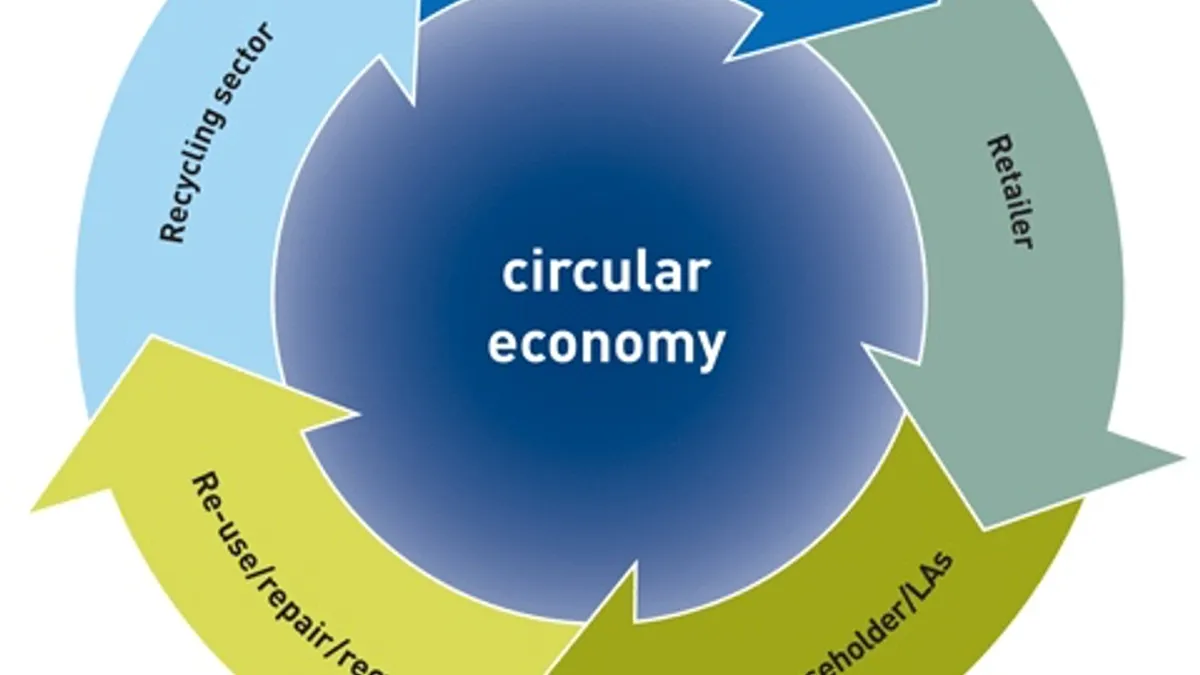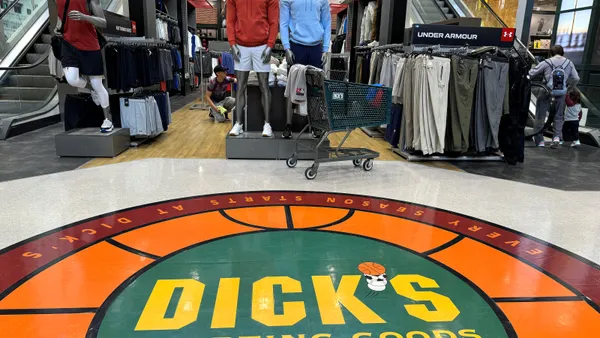Dive Brief:
- Fifty-one percent of supply chain professionals expect their focus on "circular economy strategies" to increase over the next two years, according to a Gartner survey of 528 supply chain professionals across the high-tech, industrial and food & beverage industries, conducted in May and June.
- Growth in supply chain sustainability strategies are propelled by two main factors — products as a service model gaining traction, due to consumers wary of making large purchases, and the potential for circular economic strategies to enhance the security of raw materials by utilizing end-of-life products — Gartner’s Opportunity After Crisis Survey found.
- Accessing and reprocessing end-of-life products are the biggest challenges organizations face when transitioning from a linear to circular supply model, according to Gartner.
Dive Insight:
Across industries, companies appear to be committed to integrating sustainability practices into their supply chain strategies, as consumer, shareholder and governmental pressures to reduce the impact of industrial operations continue, unabated by the pandemic. To realize less waste and less consumption, chief supply chain officers believe that a circular economy remains the road forward, the Gartner survey shows.
Instead of halting progress, the pandemic has resulted in many companies doubling down on previous expectations that closed loop supply systems will become the norm by exposing latent issues with the current setup. Last year, Gartner predicted that within 10 years circular economies will replace linear economies, revolutionizing the landscape.
"The COVID-19 pandemic has shown that the strengths of globalized supply chains can become a weakness when raw material availability and access plummet during a crisis," said Sarah Watt, senior director analyst with the Gartner Supply Chain Practice. "For CSCOs, the circular economy is a great opportunity to improve raw material resilience and decouple material consumption from financial growth."
Recent moves this month by Timberland and Nestlé highlight the ongoing momentum to address environmental impact, with pledges to have a "net positive impact on nature by 2030" and a $30 million investment to find solutions to "the global plastic waste challenge," respectively.
While the switch to a circular economy has its advantages, it is not free of challenges.
Accessing end-of-life materials is proving to be the biggest issue, according to the Gartner survey. This is due to four challenges: ownership of end-of-life materials, getting a sufficient quantity of materials back to make the investment worthwhile, a low residual value associated with a product, and product complexity.
Since supply chain investments must focus on reverse logistics to make circular systems viable, Gartner advises there are ways to mitigate challenges.
"The one thing supply chains can do which has the potential to enable and accelerate circular economy outcomes, is to get involved in the design process," Watt said by email. "Supply chain professionals must engage with product design to highlight constraints and opportunities for end of life materials management."















